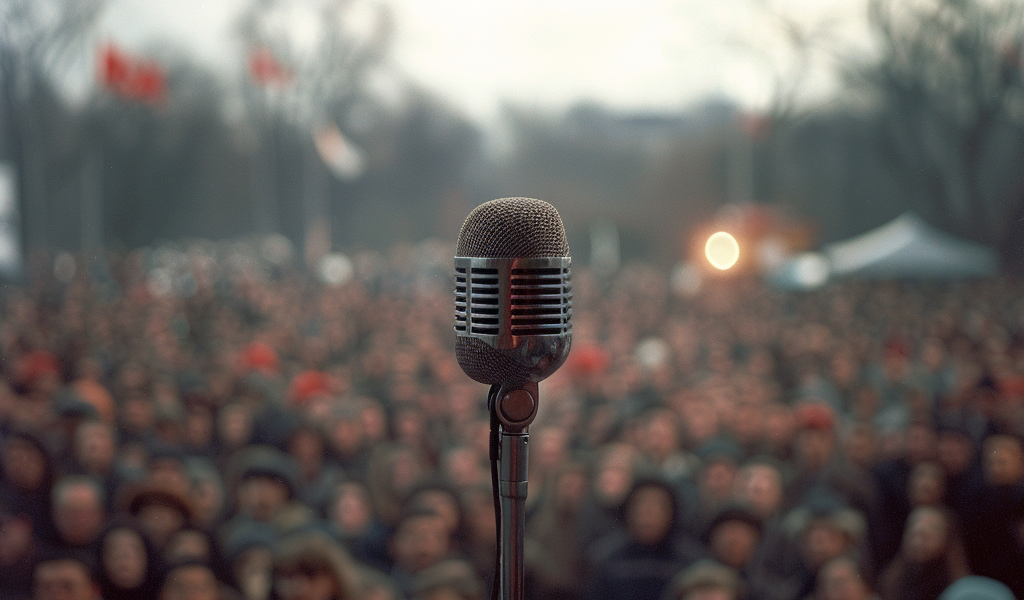In a surprising turn of events, the estate of the legendary singer-songwriter Leonard Cohen has taken a firm stand against former President Donald Trump, issuing a cease and desist order regarding the use of Cohen’s iconic song, “Hallelujah.” The controversy erupted after a recording of Rufus Wainwright performing the beloved ballad was played during a recent campaign event in Oaks, Pennsylvania, which has been characterized by many as bizarre.
Rufus Wainwright himself voiced his disapproval of Trump’s use of the song, emphasizing its profound message of peace, love, and acceptance. He expressed his dismay, stating, “Hallelujah is an anthem dedicated to peace, love, and acceptance of the truth. I’ve been supremely honoured over the years to be connected with this ode to tolerance. Witnessing Trump and his supporters commune with this music last night was the height of blasphemy.” Wainwright further elaborated on his feelings of mortification regarding the situation, while also expressing a glimmer of hope that perhaps Trump might reflect on the lyrics’ deeper meaning. However, he added, “I’m not holding my breath.”
The event in question featured a mix of music and a Q&A session, during which many attendees reportedly required medical attention due to the high temperatures. Trump initially made light of the heat, joking, “Personally, I enjoy this. We lose weight. We could do this, lose four, five pounds,” before shifting to a musical interlude. Alongside “Hallelujah,” other tracks played included Luciano Pavarotti’s rendition of “Ave Maria,” Guns N’ Roses’ powerful ballad “November Rain,” and classics like James Brown’s “It’s a Man’s, Man’s, Man’s World,” the Village People’s “YMCA,” and Sinead O’Connor’s “Nothing Compares 2 U.”
Following the event, Trump took to Truth Social to share his perspective, stating, “The Q and A was almost finished when people began fainting from the excitement and heat. We started playing music while we waited, and just kept it going. So different, but it ended up being a GREAT EVENING!” This remark, however, did little to quell the backlash surrounding the use of Cohen’s song.
Kamala Harris, the Vice President of the United States, also weighed in on the incident, sharing a clip from the event with a caption that read, “Hope he’s okay.” This comment reflects the ongoing scrutiny and criticism that Trump faces from various political figures and artists alike.
The use of music at Trump’s rallies has frequently sparked controversy, with numerous artists publicly opposing their songs being played at his events. Notably, in August, Beyoncé took action to prevent the use of her song “Freedom” during a Trump rally, highlighting the growing trend of musicians asserting their rights over their work in the political arena.
As the 2024 presidential election approaches, the intersection of politics and music continues to be a hotbed of discussion. Artists like Wainwright and the Cohen estate are vocalizing their discontent, emphasizing the importance of preserving the integrity and intended messages behind their music.
The situation raises broader questions about artistic expression, ownership, and the ethical implications of using music in political contexts. With the ongoing debates surrounding these issues, it is clear that the relationship between artists and political figures remains complex and often contentious.
As the political landscape evolves, it will be interesting to observe how artists continue to respond to the use of their music in campaigns and whether further actions will be taken to protect their artistic legacies from being co-opted for political purposes.





